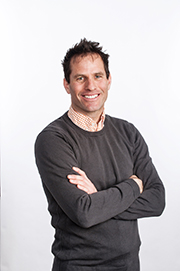
Dr. Gary Pluim
Ph.D. University of Toronto, 2014
M.A. University of Toronto, 2008
B.Ed. Queen's University, 1997
B.A. University of Waterloo, 1995
My research explores meanings and expressions of citizen participation in international and educational contexts. While the recommendation of more citizen participation routinely emerges as a solution in addressing global social problems such as unequal wealth distribution, misguided international development programs, and a myriad of social injustices, the contexts, constraints and conditions through which citizens actually participate are frequently obscured. Exploring issues related to citizen participation—cross-cultural interpretations, norms, and worldviews; barriers of language, gender, and class; and the limits and opportunities of participatory institutions—is a central focus of my research.
Some examples of my work include my doctoral thesis that examined constructions and conceptualizations of youth participation in the context of the post-disaster, national reconstruction of Haiti; my contribution to the Democracy, Political Literacy and Transformative Education research project, an initiative that examines how educators perceive democracy and how their perceptions impact their students’ understanding of democracy; and recent research that explores teachers experiences with critical reflexivity in the classroom.

